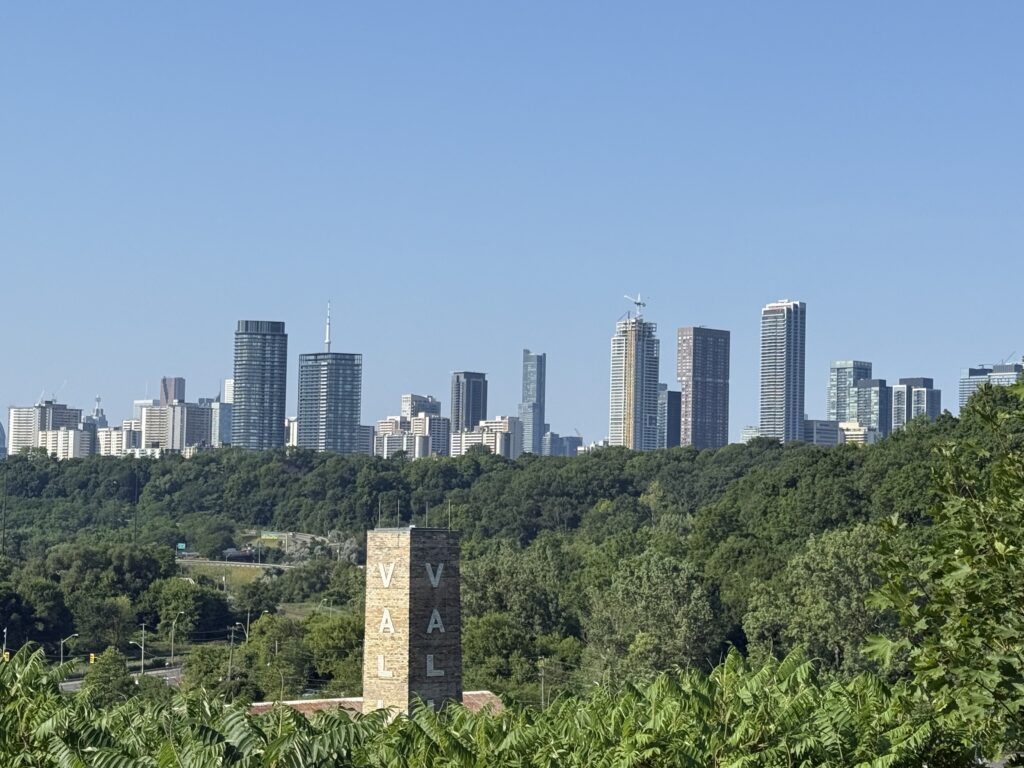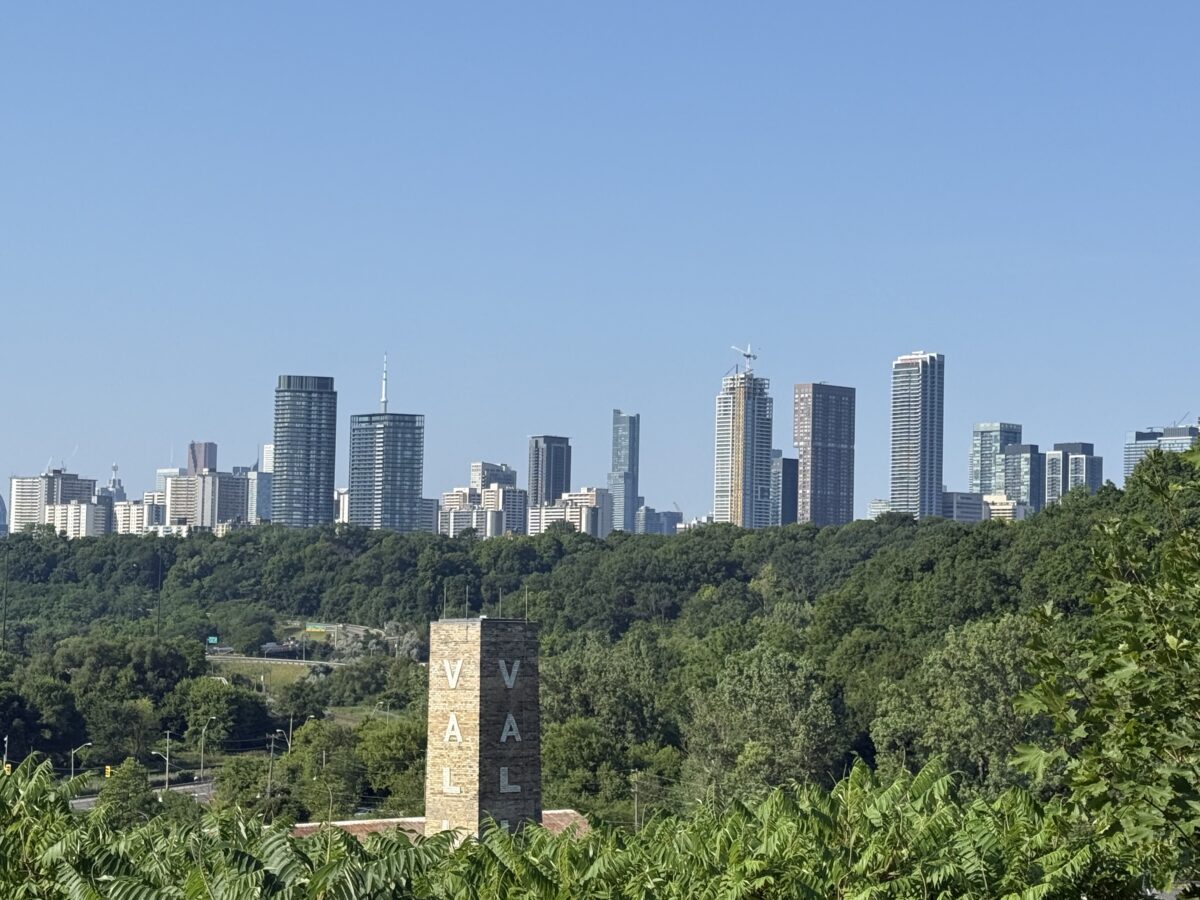
In my mind it looms large. In reality it’s little more than a path leading out of a Toronto park, a former quarry. Generations scooped out shale and clay for the bricks that built old town Toronto. After that ran out, the local conservation authority bought the land and turned it into a park. Now tourists, wedding parties and cyclists saunter leisurely through the landscaped pit, admiring the ponds where steam shovels formerly ripped the earth
I don’t saunter. I pit myself against “The Hill” as I call the path. It’s my own Tour de France mountain stage, a personal biking challenge, even though it’s only about 80 feet high.
If no one’s lollygagging at the base, I can gather speed and let momentum carry me partway up. That never lasts long before I need to start pumping the pedals. It wouldn’t be difficult if it didn’t snake up and around on its way to the top. It’s those damn turns that make it challenging.
A hot day makes it even tougher, as my lungs labour to compress the sticky soup Toronto calls summer air. Even without the added difficulty, there’s a point where doubt starts creeping in: am I going to make it?
That sounds terribly dramatic but is entirely self-inflicted. Not making it means walking the rest of the way, not falling to my doom. There are no medals for reaching the top, except the one in my mind that says “Not today, Hill. I win.”
But a few years ago, the realization hit me: one day The Hill is going to win, finally and forever. Over the last few years, I’ve had to admit defeat and perform my self-inflicted walk of shame more often than I care to admit. Those times seem to be coming more frequently, even though I’m still in my early 50s. At moments like those I think about my dad.
He passed away last summer, but in his final years he was able to do fewer and fewer things that were dear to him. First he had to give up his house and move to a seniors facility. Then he had to stop driving. Then the long walks stopped, and eventually walking anywhere aside from the dining hall ceased. But the loss I remember most is fishing. For years, I tried to go fishing with him one last time, like we did when I was a little boy. I could see the day coming when we wouldn’t be able to do so ever again. I tried convincing him again and again to let me drive him down to St. Margaret’s Bay outside Halifax, where we used to cast for mackerel.
But there always seemed to be a reason not to go until one day age won, and I realized we were never going to go fishing together again. I think about that whenever I catch myself crafting an excuse not to do something I enjoy, or when I feel like giving up before the finish. The little victories I earn atop The Hill makes me feel alive in some small way, and I try to remind myself that one day the choice to try again won’t be there.
That’s what I tell myself whenever I’m feeling the burn going up The Hill. Near the top there’s sometimes a panic moment when I start to wonder, breath labouring, “What happens if I pass out? Has anyone had a coronary trying to summit this thing?” It’s pretty silly, and is more about anxiety than imminent system collapse. I realize it’s not the Pyrenees and I’m not in the Tour de France. But when I’m pedalling like crazy and starting to doubt myself, my mind can spiral away in strange directions.
The reward is a view of the Don Valley, a lush canopy struggling to eclipse the taller and taller towers Toronto is continually pushing up downtown.
One day will be the last victory. I won’t know which one it is. It’ll just be a good day before a not-so-good day. But then the next day will be another not-so-good day, and another, until I finally realize The Hill has won.
This is the way of all flesh: the things that were easy a few years, a few decades ago, one day seem hard.
Age is a process, not an event. It’s a companion you develop a closer relationship with the longer you last, a kind of friend you grow closer to. Age gradually takes things away, some good and some bad. It takes away selfishness, immaturity and impulsiveness. It also takes away strength and reflexes. I didn’t say it was always a kind friend, but it’s the only lifelong friend you’ll ever have.
Maybe I’ll get a better bike, a real racer, that will buy a few more years of victories and delay the inevitable. That day will come, but not quite yet. For now, in man vs. Hill, I’m still coming out on top more often than not.



